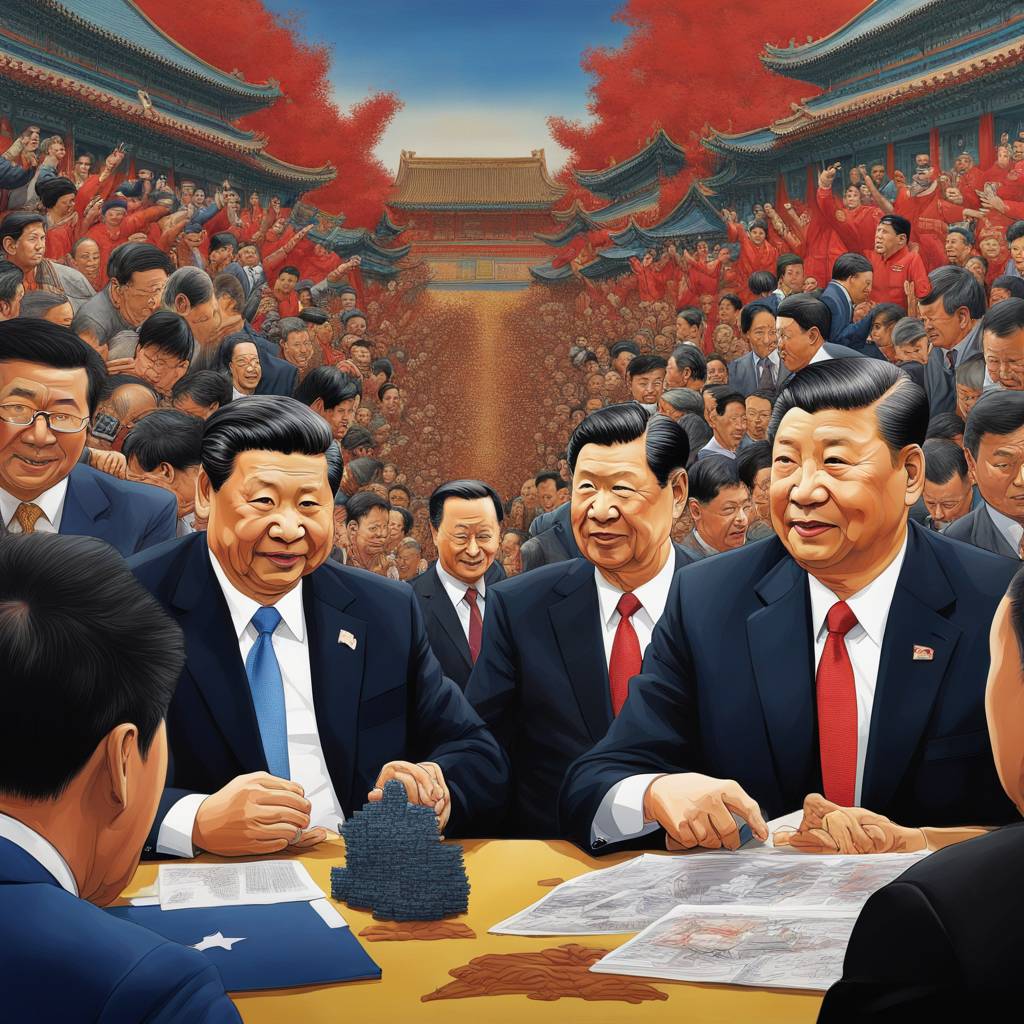U.S. business leaders recently met with Chinese President Xi Jinping in Beijing in an effort to bolster foreign investment in China amidst tensions with the U.S. The attendees included top executives from companies such as Blackstone, Qualcomm, Bloomberg, and FedEx. These meetings were a follow-up to Xi’s dinner with U.S. business executives in San Francisco in November and coincided with the annual China Development Forum, which aimed at attracting foreign business. In addition, Chinese authorities hosted an “Invest in China Summit” and eased once-stringent data export requirements, providing more clarity for member companies.
Despite efforts to attract foreign investment, a combination of geopolitical tensions, regulatory uncertainty, and slower economic growth has made it challenging for foreign businesses in China. Former U.S. Secretary of Commerce Carlos Gutierrez noted that businesses are experiencing confusion due to conflicting ideologies between different countries, emphasizing that the current global situation is temporary. With Biden introducing incentives for boosting industrial development in the U.S., export controls have restricted U.S. companies from selling advanced semiconductor technology to China, further complicating the business environment.
To facilitate foreign businesses in China, the idea of creating a “Chief China Officer” based at a company’s global headquarters was proposed. This executive would help bridge the gap between the main office and the leadership team in China, providing better understanding and navigation of the Chinese market. The near-term growth outlook for China is also a consideration for businesses looking to invest in the country, as the Chinese government announced a growth target of around 5% during its parliamentary meeting. However, many analysts view this goal as ambitious given current stimulus levels and issues in the real estate sector.
foreign direct investment in China fell to a three-year low in 2023, despite China’s efforts to attract foreign capital post-pandemic. The country held the first “Invest in China Summit” as part of these efforts, emphasizing China’s market size, industrial supply chain, and regulatory improvements for foreign businesses. While U.S. and European companies face geopolitical challenges in China, Middle Eastern and Japanese companies are eyeing investment opportunities. The Saudi energy giant, Aramco, has made significant investments in China’s chemicals industry, while Japanese companies are looking at robotics, factory automation, and the automotive sector for potential investments.
Overall, foreign businesses in China are navigating challenges related to geopolitical tensions, regulatory uncertainties, and economic growth concerns. Despite efforts to attract foreign investment and the presence of dedicated executives to bridge the gap between global headquarters and China leadership teams, businesses remain cautious due to the uncertain future. However, China continues to promote itself as an attractive investment destination, highlighting its market potential, supply chain capabilities, and regulatory improvements to encourage foreign capital inflow. As the global economic landscape evolves, foreign companies will continue to monitor and assess opportunities in China based on various factors including political, economic, and regulatory considerations.


